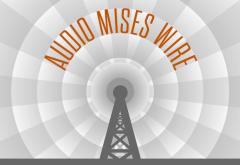Capitalism vs. Freedom: The Toll Road to Serfdom by Rob Larson Zero Books, 2018, 233 pp. Rob Larson, who is a professor of economics at Tacoma Community College in Washington, does not agree with Mises, Hayek, Rothbard, and Friedman that the free market promotes freedom and prosperity and that socialism is the “road to serfdom.” That is an understatement, and you won’t find any understatements in this book. To the contrary, the book abounds in wild accusations. For...
Read More »No, Inflation Is Not Good for You
According to the Marxists and their fellow travelers, inflation is good because it transfers wealth from creditors to debtors, and debtors are “the 99 percent.” But inflation doesn’t work that way. Original Article: “No, Inflation Is Not Good for You” With the recent rise in inflation—with subsequent increases in both consumer and producer price levels—one suspects that sooner or later people on the left either would downplay it or find a way to spin the bad...
Read More »Housing Hubris: Can Home Prices Spiral upward Forever?
For the Wall Street sequel, the subtitle was Money Never Sleeps. But the Oliver Stone reprisal of Gordon Gecko was the stuff of 2010. In America, a decade plus ago, money slept. Now, it truly doesn’t, with cryptocurrency prices gyrating 24/7/365. This frantic activity has spread to other asset markets. Once real estate was stable and slow moving. Buyers would walk through a home, and walk it again with someone they trusted, before making an offer. But, as Francesca...
Read More »Why Don’t Police Unions Protect Whistleblowers?
Sergeant Javier Esqueda of the Joliet Police Department in Illinois thought he was doing the right thing by leaking a video recorded from inside of a squad car that showed a black man, Eric Lurry, in medical distress from a drug overdose being slapped and having a police baton forced in his mouth. Lurry later died from the overdose. Sergeant Esqueda received an award from the Lamplighter Project, an advocacy group for police whistleblowers. After an internal affairs...
Read More »With Low Vaccination Rates, Africa’s Covid Deaths Remain Far below Europe and the US
Since the very beginning of the covid panic, the narrative has been this: implement severe lockdowns or your population will experience a bloodbath. Morgues will be overwhelmed, the death total toll will be astounding. On the other hand, we were assured those jurisdictions that do lock down would see only a fraction of the death toll. Then, once vaccines became available, the narrative was modified to “Get shots in arms and then covid will stop spreading. Those...
Read More »Smallpox: The Historical Myths behind Mandatory Vaccines
Throughout the corona “pandemic” the Holy Grail of public health officials has been vaccination: only by vaccinating enough people—first the elderly and infirm, then all adults, and now even children—can the nefarious virus be beaten. As vaccination has proven less than wholly successful in preventing the spread of coronavirus, with studies showing rapidly declining protection from the vaccines, governments have doubled down, introducing not only “booster” shots for...
Read More »The Inca Empire: An Indigenous Leviathan State
One of the realities that nullifies persistent interpretations of the European colonization of the Americas as a cataclysm of subjugation is the existence of state exploitation in the precontact New World. As I have recently shown, many common Indians lived in banal slavery to a political class—the same servitude that every “citizen” of a state lives under, compelled to labor for the benefit of others, albeit with its own unique packaging and set of justifications....
Read More »Is Price Stability Really a Good Thing?
Contrary to popular thinking, there is no such thing as a price level that should be stabilized by the central bank in order to promote economic prosperity. Original Article: “Is Price Stability Really a Good Thing?” One of the mandates of the Federal Reserve System is to attain price stability. It is held that price stability is the key as far as economic stability is concerned. What is it all about? The idea of price stability originates from the view that...
Read More »No, Inflation Is Not Good for You
With the recent rise in inflation—with subsequent increases in both consumer and producer price levels—one suspects that sooner or later people on the left either would downplay it or find a way to spin the bad news into something positive like an alchemist would want to spin straw into gold. Both accounts have arrived, thanks to the New York Times and the hard-left publication, The Intercept. The various accounts in the Times hardly are surprising, given the link...
Read More »The REAL ID Means a Real Leviathan
The annoyance of government edicts, no matter how petty, challenge my emotional equilibrium in a manner different from the various vagaries of life. Sure, I do not want to experience something such as a flat tire, but neither do I want to deal with pointless tasks required to satisfy a whim of the state, though, in the balance, the former I accept like a mosquito on a hot summer’s night, while the latter aches like a hammer to my thumb. Robert Higgs wrote Crisis and...
Read More » Swiss Economicblogs.org
Swiss Economicblogs.org










